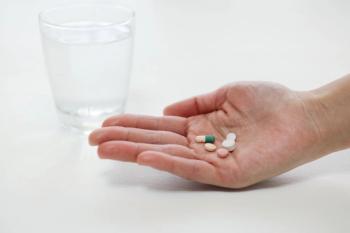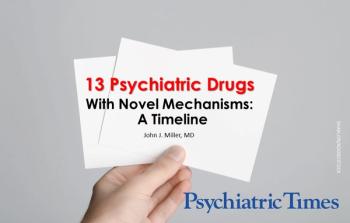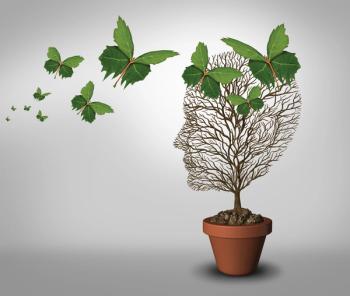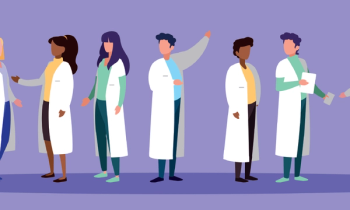
The genome combined with experiences make a person who they are. 80 billion neurons connect to 1,000 to 10,000 synapses, and all of those minuscule connections form a person.

Dr Miller is Medical Director, Brain Health, Exeter, New Hampshire; Editor in Chief, Psychiatric Times; Voluntary Consulting Psychiatrist at Seacoast Mental Health Center, Exeter/Portsmouth, NH; Consulting Psychiatrist, Insight Meditation Society, Barre, Massachusetts.

The genome combined with experiences make a person who they are. 80 billion neurons connect to 1,000 to 10,000 synapses, and all of those minuscule connections form a person.

As the pandemic and social issues rage on, a palpable and consistent theme runs through us, and that is the very best of human behaviors.

Over the years, Psychiatric Times’ editor in chief has developed “Miller’s Formula,” his 10-step system to ensure a successful cross-titration for his patients. The strategies are straight-forward and can be used for any drug and in any specialty.

What is seasonal affective disorder (SAD), and can it be affecting your patients? Psychiatric Times’ Editor in Chief John J. Miller, MD, explores the history of SAD and how he integrates the use of light boxes for significant improvement in his patients.

Key leaders experienced in real-world clinical practice share on a range of topics.

The patient is watching and learning, even subconsciously, and it is an opportunity to enhance care.

Nobody can deny that 2020 has been a stressful year, and self-care is essential for all. In this Mental Health Minute video, John J. Miller, MD, shares tips for leveraging self-hypnosis and mindfulness as an antidote to the stresses and fight or flight mode of anxiety.

What better time to set aside our differences than during the holidays?

Join Psychiatric Times’ Editor in Chief John J. Miller, MD, as reflects on his early days as a clinician, when he witnessed the incredible power of the right psychopharmacology.

Dr Miller offers advice on making sure you have enough medication when self-isolating.

For many, fall brings the things we enjoy—turning beautiful leaves, coziness and warm comfort foods, family time, and the beginning of the holiday seasons. This year it also brings elections, with partisan divides we have not seen in a long time. Psychiatric Times’ Editor in Chief John J. Miller, MD, considers the affects of election anxiety, and reminds us that we need to do our civic duties by voting and then find a way to move forward—together.

Join Psychiatric Times’ Editor in Chief John J. Miller, MD, Psychiatric Times’ regular contributors and Editorial Board members, and other leaders in the field to explore the latest treatment strategies. The Annual Psychiatric Times World CME Conference is this week, October 15th – 17th. Reserve your space here.

In many clinical situations to "do no harm" requires us to know what we know, know what we don’t know, and consult with a colleague who likely knows more than we do.

What happens when a patients decides to quit taking a serotonin reuptake inhibitor?

Dr John Miller shows us one of his favorite topics to talk about and practice.

We have been here before. In fact, we have survived more challenging times. The truth serves as the foundational first brick of the edifice of knowledge and problem-solving.

Two examples described here underscore the importance of understanding the cytochrome P450 (CYP) system

Drug mechanisms of action are evolving. An area in psychiatry that has become increasingly important clinically is discussed here.

Reflections on the current psychiatric literature as well as the many accomplishments psychiatry has seen since the 1950s.

Some speculate the pharmaceutical industry has virtually abandoned new drug development in neuroscience with a few exceptions. However, it should be noted that progress has been made.

A 4-step plan to tackle the worries of the day.

My initial glance before my patient sees me usually tells me a lot about how they are doing and what to expect during the appointment.

A good night's sleep is foundational to maximal functioning, lowered stress, good reaction time, and enhanced cognitive function. Strategies discussed here.

After so many weeks of sheltering in place, watching the news, and not going to restaurants or other public places due to the pandemic, how do we re-engage and re-integrate slowly and maintain calm?

Isolation does not mean disconnection. Our souls and spirits need to feel part of the bigger family that we are. More in this video.

Many serious challenges will face us once the curve has been flattened, and we work as a nation toward recovery in the war against COVID-19.

All current FDA-approved medications for the treatment of schizophrenia antagonize dopamine type 2 receptors-but that is where their similarity ends.

How will the coronavirus pandemic impact psychiatry as a field? Are there any neuropsychiatric symptoms associated with the COVID-19 virus? Those questions answered in this video.

What do we tell patients regarding the pandemic both in terms of office policies and preparations for self-isolation and quarantine as well as dealing with uncertainty?

It can be disheartening to hear about the pervasive culture at many medical centers and health care systems to ostracize the pharmaceutical industry, and not uncommonly, to threaten to fire employed physicians and clinicians who would like to attend educational programs about new medications on their own free time.